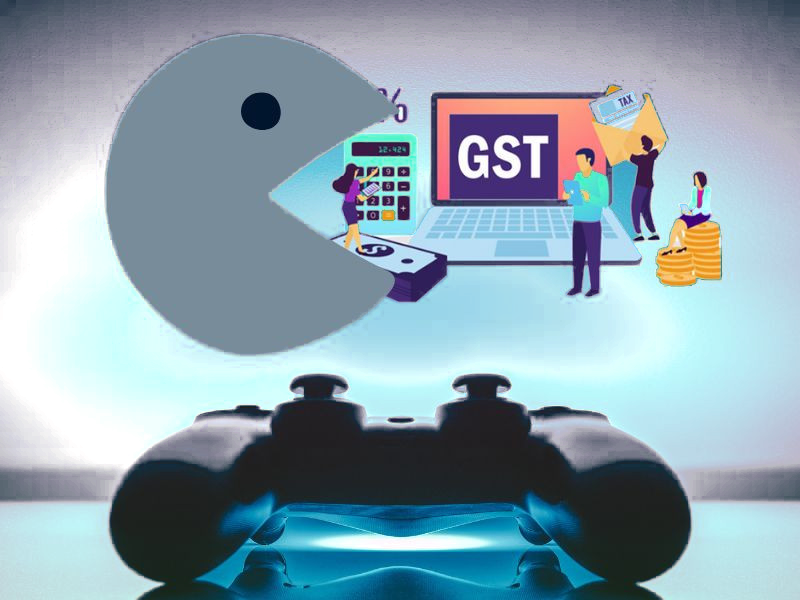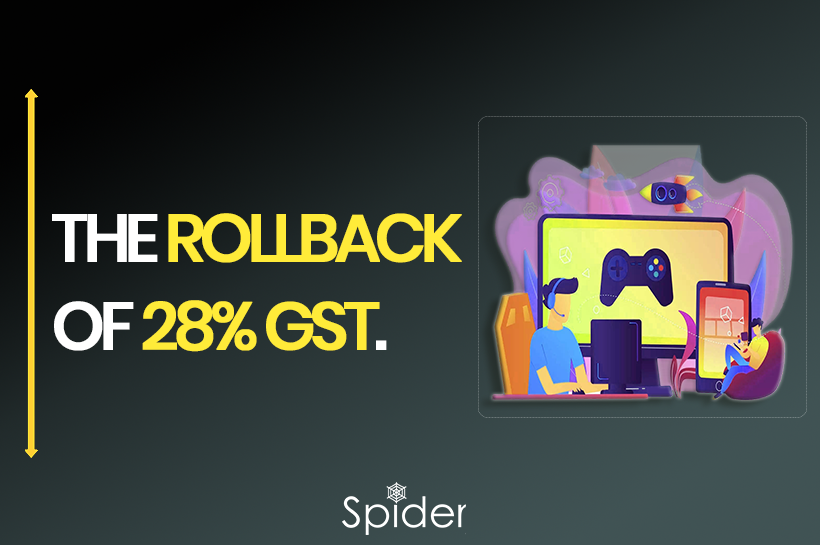ESC Chairman Sandeep Narula wants the GST Council to review the 28% GST on online gaming, highlighting its skill-based nature.
The Electronics and Software Export Promotion Council

ESC urges the government to maintain the current tax status for online gaming. Chairman Sandeep Narula emphasizes the industry’s employment potential and calls for a balanced approach from the GST Council for the Rollback of 28% GST.
ESC Chairman, Sandeep Narula, expressed concern about the 28% GST imposed on online gaming by the GST Council. He emphasized that the tax does not differentiate between skill-based and chance-based online games, despite the significant skills required in online gaming. Narula emphasized that such taxation could hurt the online gaming industry.
Suspending the 28% GST on Online Gaming: Key Reasons
ESC recommends the Rollback of 28% GST due to concerns that the current tax does not account for the 18% GST paid by online startups as a platform fee/commission. They suggest delaying GST imposition on online gaming until industry and tax authorities address the concerns through discussions.
ESC also highlighted the fact that numerous companies have invested significant amounts of money in online gaming infrastructure and software development. However, the imposition of GST poses a threat to these investments. The implementation of GST may deter potential players from engaging in online gaming, despite its requirement for advanced skills and mental capacity.
Negative Impact on the Industry

The introduction of the new levy will restrict the gaming industry’s capacity to invest in new games, create innovative software, and impede business expansion.
Former Finance Secretary Subhash Chandra Garg also expressed his disapproval of the GST Council’s decision to impose a 28% GST on the total value of online gaming transactions. He argued that the effective GST rate could be as high as 280%, which he found concerning.
As an example, Platforms pay Rs 28 tax for every Rs 100 player payment, despite earning only Rs 10. This results in an effective tax rate of 280%. Currently, there is an 18% GST on contest entry amounts and a 30% TDS on player winnings. Industry perceives this decision as harmful and potentially resulting in job losses.
The Future of the Gaming Industry, if 28% GST Rolls back
Gaming industry to exceed Rs 25,000 crore revenue by 2027. This sector has the potential to attract a substantial amount of foreign direct investment (FDI) as global gaming companies are increasingly showing interest in the Indian market.
To summarize
To summarize, the 28% GST on online gaming transactions has raised concerns in the industry.
Tax calculation includes platform fees, resulting in up to 280% effective tax rate on total transaction value. Furthermore, contest entry amounts are subject to an 18% GST, while player winnings undergo a 30% TDS deduction. The decision is seen as harmful to the industry, affecting investments, jobs, and growth. Rolling back GST on online gaming attracts foreign investors, fostering industry growth and boosting the economy.
Learn how utilizing the Momentum Strategy can boost your intra-day trading skills and take your trading abilities to new heights. Click Here To Register

Also, Check out How India will surpass the other Nations and become the 2nd Largest Economy in the World by 2027.
Disclaimer: The information provided in this Blog is for educational purposes only and should not be construed as financial advice. Trading in the stock market involves a significant level of risk and can result in both profits and losses. Spider Software & Team does not guarantee any specific outcome or profit from the use of the information provided in this Blog. It is the sole responsibility of the viewer to evaluate their own financial situation and to make their own decisions regarding any investments or trading strategies based on their individual financial goals, risk tolerance, and investment objectives. Spider Software & Team shall not be liable for any loss or damage, including without limitation any indirect, special, incidental or consequential loss or damage, arising from or in connection with the use of this blog or any information contained herein.





